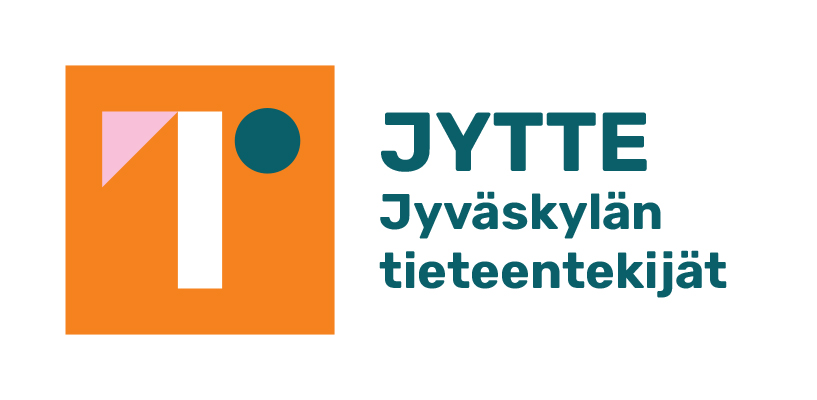The theme for Jytte’s activities in 2022 is climate and sustainability, and these topics are also discussed in this blog this year. In the first post, Heli Niskanen introduced herself and talked about why concerns over the climate drew her back into Jytte’s board. This, the second blog post, discusses the work on climate, sustainability, and accountability done at the University of Jyväskylä. For the post, Heli interviewed the University’s sustainability and responsibility specialist Ulla Helimo. More posts will follow in the autumn of 2022.
The University’s new environment programme will soon be here
The most important recent part of the climate, sustainability, and accountability work of the University of Jyväskylä must be the ratification of the new environment programme in the board meeting on 10 Jun 2022. The earlier programme was in place in 2016–2022, which means that for over a year we have had no programme at all. The new 2022–2030 programme proposes “concrete actions for reducing the impact on climate and biodiversity”. It will affect all members of the university community since research, teaching, work, and other activities will be assessed from the point of view of sustainability and in terms of reaching carbon neutrality and net positive impact.
At Jytte’s climate and environment working group meeting on 3 May 2022, the University’s sustainability and responsibility specialist Ulla Helimo noted that work on the new programme took a long time because it is ambitious, and the work was grounded on data on the impact of the University on climate and biodiversity. The programme does not deal just with the reduction and compensation of these impacts but also the way the University can be a forerunner in issues on sustainability and responsibility by way of its teaching and research.
As of this writing, the new programme has not yet been published so the details of its contents are not yet available. Based on what Helimo said in May, however, Jytte’s climate and environment working group considered the programme as a step towards the right direction. The programme is wide in its scope, next to which it is positive that the planned actions and their practicality have been discussed with different working groups and institutions during the drafting of the programme. For example, the University Collegium has commended the draft for being comprehensive and thorough.
How will the new programme affect everyday life at the University?
Will the new programme mean changes to the ways members of Jytte will carry out their work? According to Helimo, there will be changes to the way things are done, for example on work-related expenditure and mobility. Training is also planned, for example on responsibility, so that work can be conducted in a more sustainable and responsible way.
Helimo endorses systemic change, that is, changes should be structural and come from above instead of being the individual responsibility of each member of the community. This is a point on which Jytte’s climate and environment working group agrees with Helimo. Although we are all responsible for choices regarding our diet and mode of commute, the University must seek to work towards achieving its goals as an organisation and on the level of units. The University could, for example, encourage changes in the menus of the student and staff cafeterias.
Helimo also believes that the programme will be linked to operations by having each unit report on its actions. Currently the differences in emissions and the number of their sources vary noticeably between units. According to the Sustainability for JYU report by JYU Wisdom, the emissions caused by procurement were easily the largest at the faculty of mathematics and science (p. 12). On the other hand, the per capita ration was highest at university services and independent institutes since they have no students (p. 13). The school of business and economics and the faculty of information technology had the highest per capita commute emissions (p. 16-17). According to Helimo, in the future each unit will get personalized data on their emissions so that actions can be based on facts. Units are likely to plan ways to reduce emissions based on their action and emission profiles.
Complain, thank, and influence!
So, what can an individual member of Jytte do? Helimo says that giving feedback is always worthwhile, whether it is positive or negative. In her experience, nowhere near enough feedback is given. Thankfully, this is something each member of Jytte can easily change. Complain and thank! Are there not enough interesting vegetarian or vegan meals available in the cafeterias? Give feedback through their website or mention it at the till. Has the University done something positive regarding climate or environment? Thank the management. The more feedback is received across the University, the more we are all encouraged to reflect on and change our actions.
Jytte’s climate and environment working group is of course also interested in knowing what Jytte can do to support change. Helimo thinks that different working groups are a good way to exert influence. People can send suggestions and proposals that in best cases can become actions.
One group active at the University of Jyväskylä is the Campus development group. One of its tasks is to promote sustainability. At the beginning of 2022, the Campus development group was on hiatus. Its term ended at the end of 2021 and the University website provided no information about the future of the group. Jytte’s climate and environment working group found it alarming that the work of such an essential group had been paused for months. Thankfully in May, as this blog post was being written, the names of the new members of the group for the 16 May 2022 – 31 Dec 2024 term were announced. Akava’s Public Sector Negotiating Commission JUKO is represented in the group by university teacher Jaana Toomar. Jaana has agreed to share the agenda for the campus development group’s meeting with Jytte’s board so that our comments can be added to the discussion. We hope to maintain a line of communication with the group.
Another essential group in terms of climate and environment work is the Capable, creative and healthy University community that discusses things such as staff benefits. The topics the group considers could include, for example, whether allowing staff to use the two-hour workplace exercise allocation for commuting might encourage them to cycle or walk to work. They could also consider whether public transport discounts would be a better staff benefit than the parking permits they are currently being offered. One of the members of the group is research coordinator Matti Leppäniemi who is also a member of Jytte’s board, so information between the group and Jytte flows seamlessly. Please send any ideas for the working group directly to Matti.
Some unanswered questions
Based on what Helimo told us, the University’s climate, environment, and sustainability work are heading into the direction Jytte was hoping for. Of course, the programme itself is not enough unless the ideas are turned into concrete actions. The responsibility for this is with the managers of each unit. Helimo has agreed to talk at events in each unit and discuss, for example, the environment programme and how units could develop their practices. So, here again is a tip for all members of Jytte: ask the managers of your unit to invite Ulla over. Additionally, each member of Jytte should remember that staff voice needs to be heard for the environment programme and other upcoming plans, such as the University’s facilities strategy, to be put into practice.
Not everything is clear in the environment programme. One big unanswered question has to do with the compensation for emissions. The University aims to be carbon neutral by 2030. It means that the University should produce no more carbon emissions than can be absorbed from the atmosphere. Since the University will always produce some emissions, they must be compensated by reducing emissions somewhere else. Helimo points out that it is unclear how this can be funded and how they can be compensated. This is a problem for all Finnish universities, not just JYU. Universities are currently discussing which activities and emissions must be compensated for. That is, what is the remit of the responsibilities regarding compensation. Different universities have different views on this. It is clear, however, that compensation is inevitable, it will affect the University budget, and it will provoke a debate.
The environment programme is a map to planetary wellbeing, which refers to a situation where “the physical and ecological systems of the planet is sustained in a way that allows living beings, including humans, to fulfill their needs and survive into the future” (research coordinator Mikael Puurtinen). The journey is just beginning. JYU needs its staff to carry out the actions, so it is important that our voice is heard.

Heli Niskanen
Coordinator (Educational services)
